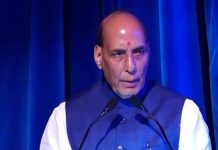New Delhi, Demonetisation was a massive, draconian, monetary shock that accelerated economic slide to 6.8 per cent in the seven quarters after it against the 8 per cent recorded prior to the note ban, former Chief Economic Advisor Arvind Subramanian said.
Breaking his silence on the November 8, 2016 decision of Prime Minister Narendra Modi, he says that he does not have a strongly-backed empirical view apart from the fact that the welfare costs, especially on the informal sector, were substantial.
“Demonetisation was a massive, draconian, monetary shock: In one fell swoop, 86 per cent of the currency in circulation was withdrawn. The real GDP growth was affected by the demonetisation. Growth had been slowing even before, but after demonetisation, the slide accelerated.
“In the six quarters before demonetisation, growth averaged 8 per cent and in the seven quarters after, it averaged about 6.8 per cent (with a four quarter window, the relevant numbers are 8.1 per cent before and 6.2 per cent after),” Subramanian says in the chapter “The Two Puzzles of Demonetisation — Political and Economic”.
The former CEA says he does not think anyone disputes that demonetisation slowed growth. Rather, the debate has been about the size of the effect — whether it was 2 per cent points, or much less. “After all, many other factors affected growth in this period, especially higher real interest rates, GST implementation and oil prices.”
Referring to the BJP’s victory in Uttar Pradesh assembly elections, shortly after demonetisation, he says it was widely seen as a verdict on the note ban.











































